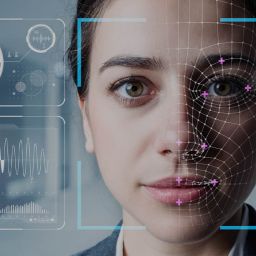We’re all digital, right? We use technology constantly at work – not to mention at home – to communicate, organize and produce. But while it’s true that we’re surrounded by technology, you may not be as digital as you think. Developing a digital mindset in the workplace goes far beyond adopting the latest technological tools to make work easier or more efficient (though that’s important, too). The digital mindset has to do with fundamentally re-thinking the way you approach your business.
And that starts with the most complex of machines: your own brain.
Discover the Guide to the main types of leaders, which one are you?
Are you a leader with a digital or analog mindset?
Do you have a truly digital mindset? This list of half a dozen concepts will allow you to gauge whether your own thinking processes are more analog or digital.
1. Everything as a service
Even the most traditional manufacturing sectors have in recent years seen a shift away from simply selling products and then ending the relationship with the consumer. Instead, companies are adding on technology-enabled services and follow-up, or even adding the option to rent out products that were once sold. In your company, what’s the service?
2. Job to be done
This mental shift involves focusing on what a consumer wants to accomplish rather than what you want to sell them. It requires new perspectives, including looking at your company from the outside in. Think bus companies that, instead of focusing on selling tickets on buses travelling from station to station, would focus on ensuring people can go from their homes to their work and build routes around that. What’s the core job to be done in your company?
3. Platform thinking
Many of the most successful tech companies are platforms, which bring producers together with consumers in innovative new ways. Think Apple’s iPhone was successful because of its cool design? That’s part of it, but more than anything Apple was successful because about 15 years ago Apple began viewing the phone as a platform (the App Store) for connecting app developers and app users. How can your company benefit from the platform economy?
4. Winner doesn’t have to take all
In a world where tech giants occupy so much of our attention, it’s easy to forget that technology also enables smaller players. Your company doesn’t have to solve the world’s problems. It can just radically solve one simple problem that consumers care about. As Google used to say on its Ten Things We Know to Be True list, which explained its corporate culture, “It’s best to do one thing really, really well.” What’s that one thing for you?
5. Learning mentality
This is an approach that means you – and your company — begin by recognizing that you don’t know everything (but you can learn most things). You have to listen to clients, be willing to change what you do based on that feedback, and be prepared to accept failure in yourself and others. This attitude creates the climate for digital innovation, including lean cycles and agile processes, in which everyone is encouraged to innovate. Do you have a learning mentality at work?
6. Frenemies
If you think frenemies – that sometimes awkward mix of friends and enemies – is only relevant to the social lives of teenagers, think again. A digital world requires working with partners and providers outside your company that in some areas may be competitors. These can be tricky relationships but they’re necessary to bring innovation into your company. Who are your potential frenemies?
Discover the 13 questions to find out if you are a good leader.
If you find it difficult to answer these questions, and you’re not sure how these concepts apply to your area of business, you’re not alone. Developing a digital mindset is a matter of training and IESE’s Executive Education courses can help. IESE offers a number of specialized courses focused on digital transformation as part of its Focused Programs. And discover the Certificate in AI & Digital Transformation.

















